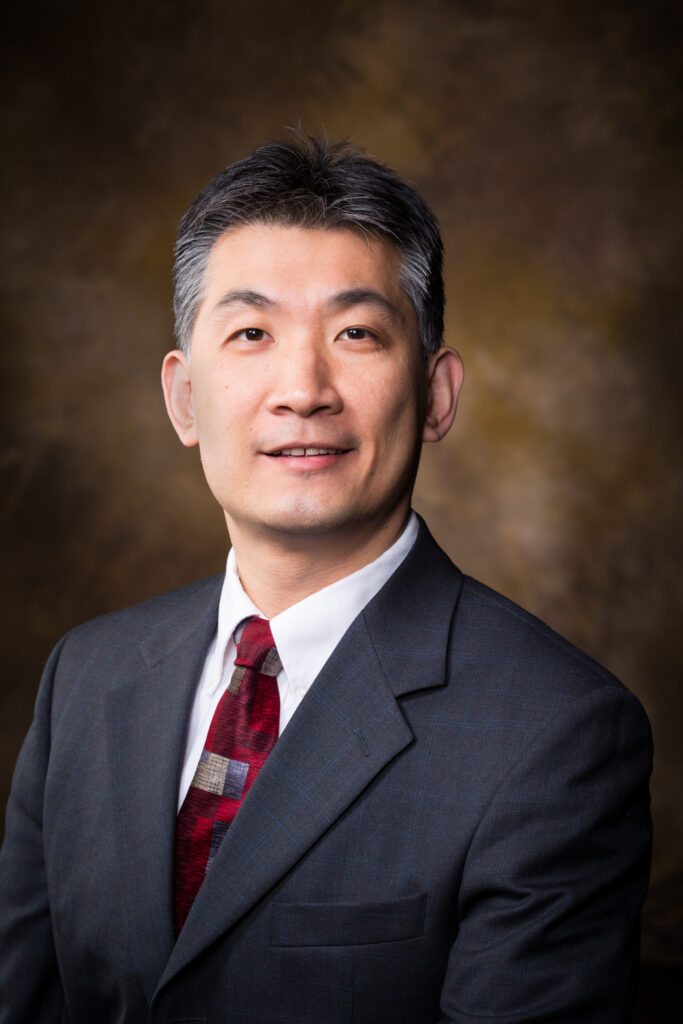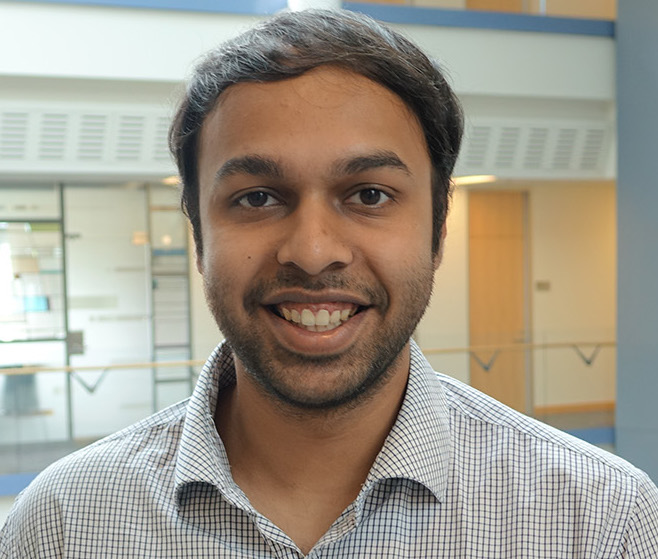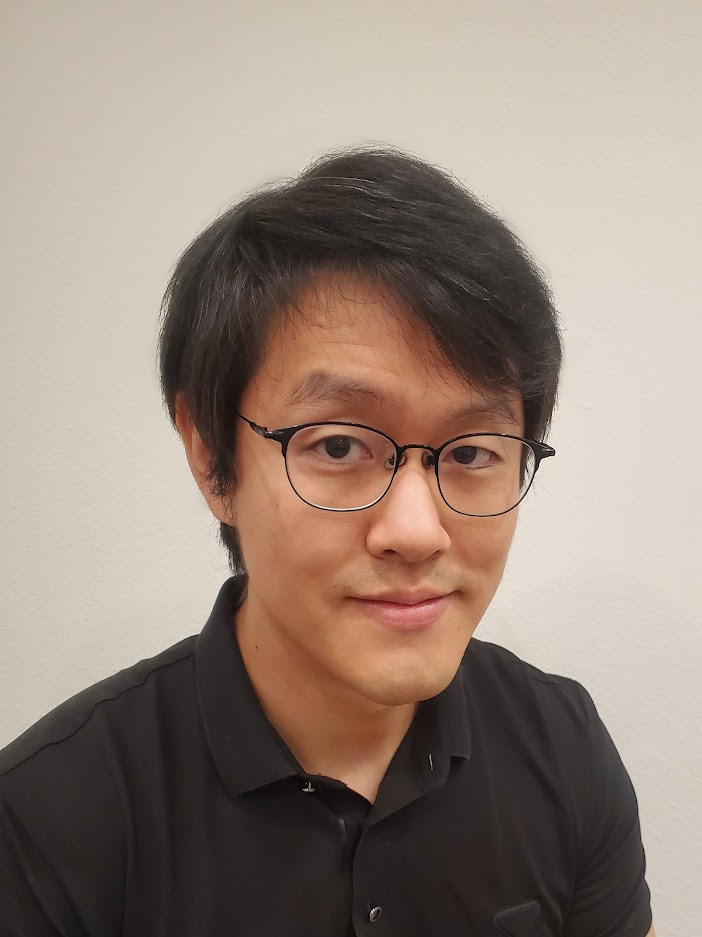Secure and Adaptive Computing from Genomics to Healthcare
Organizers: Peipei Zhou (Brown University), Madhura Purnaprajna (AMD)
*All times shown in the Arkansas local time, CDT (UTC-6)
Sunday – May 4
| 1:00 pm – 4:00 pm | Session – Secure and Adaptive Computing from Genomics to Healthcare Chair: Peipei Zhou (Brown University), Madhura Purnaprajna (AMD) |
| 1:00 pm | Opening remarks by Peipei Zhou |
| 1:05 pm- 1:35 pm | Talk I: Securing Edge Computing Devices against Hardware Attacks with Asynchronous Polymorphic Circuits Jia Di (University of Arkansas) |
| 1:35 pm- 2:05pm | Talk II: Hardware Acceleration for Next Generation Sequencing Analysis Arun Subramaniyan (Illumina) |
| 2:05pm – 2:20pm | Coffee break |
| 2:20pm- 2:50pm | Talk III: System Architectures with Adaptive Accelerators for Genomics Sang-Woo Jun (University of California, Irvine) |
| 2:50pm- 3:20pm | Talk IV: Architects of the Genome Era: Bridging Biology and Computing at Scale Sneha D. Goenka (Princeton University) |
| 3:20 pm – 4:00 pm | Panel Discussion: Is the Next-gen Adaptive Compute Ready for -Omics/Healthcare? Moderator: Madhura Purnaprajna (AMD) Panelist: Jia Di (University of Arkansas), Arun Subramaniyan (Illumina), Sang-Woo Jun (University of California, Irvine), Sneha D. Goenka (Princeton University) |
| 4:00 pm | Closing remarks by Peipei Zhou |
Talk Slides
Talk I: Securing Edge Computing Devices against Hardware Attacks with Asynchronous Polymorphic Circuits

Jia Di
Professor and Department Head, Rodger S. Kline Endowed Leadership Chair
Department of Electrical Engineering and Computer Science
University of Arkansas
Abstract:
Hardware attacks to edge computing systems are fundamentally different from their software counterparts. Defending against such attacks often requires innovations in the circuit design itself. Polymorphic circuits are fixed digital CMOS circuits with multiple superimposed built-in functionalities. Asynchronous implementations of such circuits enable the construction of large, complex circuits with practical applications. Controlled solely by the supply voltage in switching between different functionalities, these circuits offer a series of unique security features, which will be covered by this talk.
Bio:
Dr. Jia Di received B.S. and M.S. degrees from Tsinghua University, China, in 1997 and 2000, respectively. He completed his Ph.D. in Electrical Engineering at the University of Central Florida in 2004. He joined the University of Arkansas in Fall 2004, where he is now the Head of Electrical Engineering and Computer Science Department and Rodger S. Kline Endowed Leadership Chair. His research area is asynchronous integrated circuit design and hardware security. His Trustable Logic Circuit Design Lab has been sponsored by various federal agencies and industry for over $35M in the past twenty years. Dr. Di has published two books and over 130 papers on technical journals and conferences. He also has 7 U.S. patents. Dr. Di is a senior member of IEEE, an eminent member of Tau Beta Pi, and an elected member of the National Academy of Inventors.
Talk II: Hardware Acceleration for Next Generation Sequencing Analysis

Arun Subramaniyan
Staff Bioinformatics Scientist
Illumina
Abstract:
Sequencing data is now being produced at a rate that far outpaces Moore’s law and poses significant computational challenges on commodity CPU hardware. To meet this demand, software tools have been extensively redesigned and new hardware-friendly algorithm implementations and custom hardware are actively being explored. In this talk, I will present a few case studies to demonstrate how hardware/software co-design and FPGA hardware acceleration can be leveraged to enable faster, cheaper and more accurate genome sequence analysis. One notable example is the FPGA accelerated platform DRAGEN that can fully analyze a 30x human genome in less than five minutes, at a compute cost of less than ten US cents, showing significant advantages over competing CPU and GPU solutions. I will also present some of our work to characterize the genomics computing landscape using the GenomicsBench benchmark suite and how it can be used to facilitate future architectural exploration for genomics.
Bio:
Dr. Arun Subramaniyan is a Staff Bioinformatics Scientist working in the Illumina DRAGEN team. He is interested in algorithm development and FPGA hardware acceleration for next generation sequencing analysis. He received his PhD from the University of Michigan-Ann Arbor in 2021, advised by Prof. Reetuparna Das. His dissertation research focused on developing efficient hardware-software codesign techniques for pattern matching, specifically focusing on applications in precision health. His work has been recognized by an IEEE Micro Top Picks Award and has also been featured in the Communications of the ACM (CACM) Research Highlights.
Talk III: System Architectures with Adaptive Accelerators for Genomics

Sang-Woo Jun
Assistant Professor Computer Science Department, University of California, Irvine
Abstract:
The scale and importance of collecting and analyzing biological data are growing faster than Moore’s law. But since analyzing many -omics data can’t readily be mapped to ML, they can’t take advantage of the rapid improvements of ML-specific accelerators. Adaptive, reconfigurable acceleration appears to be the most likely hope for continued scalability. Unfortunately, a fast adaptive accelerator itself often does not result in end-to-end improvements, due to system architectural limitations including interconnect latency, bandwidth, and memory capacity.
In this talk, I will introduce our ongoing efforts to construct systemwide solutions which make the best use of reconfigurable accelerators, using the driving applications of de novo genome assembly. I argue that cross-layer architectural optimizations can bring us orders of magnitude improvements in performance, cost, and power efficiency.
Bio:
Sang-Woo Jun is an assistant professor in the computer science department of the University of California, Irvine. He has earned his PhD in 2018 at MIT, under the supervision of Professor Arvind. His research focus is on novel, unconventional computer architectures for affordable and scalable data analytics, including accelerators, processing in memory and storage, and algorithms optimized for disaggregated memory and storage. Some of his projects were fortunate to be recognized by the community, including a ISCA@50 25-year retrospective selection, and a best paper award at FPL.
Talk IV: Architects of the Genome Era: Bridging Biology and Computing at Scale

Sneha D. Goenka
Princeton University
Assistant Professor, Electrical and Computer Engineering Department
Abstract:
The landscape of computing has undergone a profound transformation with the end of Dennard scaling and the slowdown of Moore’s Law: today, applications drive innovation in computer systems architecture. Concurrently, the advent of high-throughput, low-cost sequencing technologies has revolutionized genomics. Yet, the massive volumes of data generated have exposed acute computational bottlenecks in biological inference—limitations that traditional multi-core systems struggle to overcome.
Addressing these challenges requires more than raw acceleration. Unlike fields such as machine learning, genomics lacks standardized, domain-specific software frameworks that bridge high-level algorithmic goals with low-level hardware efficiency. Moreover, to meet the agile demands of this rapidly evolving field, we need not only adaptable hardware platforms but also robust, scalable, and user-friendly software infrastructures that lower barriers to practical deployment. Equally important is active engagement with the genomics community—not only to drive adoption, but to encourage a paradigm shift away from heuristic-driven design and toward principled, architecture-aware algorithm development. This two-way collaboration deepens mutual understanding across domains and enables impactful, system-level innovation.
My research adopts a hardware-software-algorithm co-design methodology, using iterative insights across domains to build high-performance, scalable systems for genomics. I will highlight examples including Darwin-WGA and SegAlign, which share a modular software backend while targeting distinct hardware platforms (FPGAs and GPUs), and our ultra-rapid nanopore whole-genome sequencing pipeline, capable of delivering genetic diagnoses in under eight hours—now deployed in critical care settings at Stanford hospitals. These contributions point toward a broader, generalizable framework for future systems in genomics—one rooted in adaptability, software reusability, and deep collaboration between disciplines.
Bio:
Sneha D. Goenka is an Assistant Professor in the ECE department at Princeton University. She completed her Ph.D. in the Electrical Engineering Department at Stanford University where she was advised by Prof. Mark Horowitz. Her research centers on designing efficient computer systems for advancing genomic pipelines for clinical and research applications, with a focus on improving speed and cost. She is a 2023 Forbes 30 Under 30 Honoree in the Science category, 2022 NVIDIA Graduate Fellow, and 2021 Cadence Women in Technology Scholar. She has a B.Tech. and M.Tech. (Microelectronics) in Electrical Engineering from the Indian Institute of Technology, Bombay where she received the Akshay Dhoke Memorial Award for the most outstanding student in the program.
